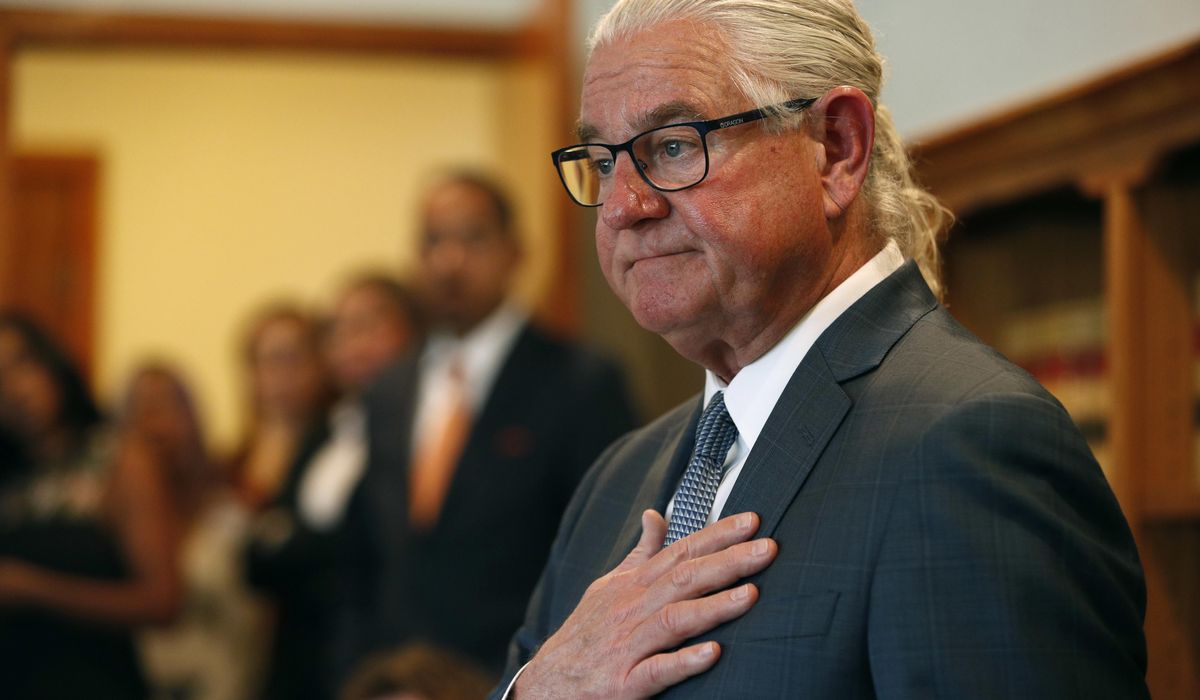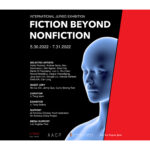
LAS VEGAS (AP) — A Nevada woman has lost her bid in a U.S. court to force international soccer star Cristiano Ronaldo to pay millions of dollars more than the $375,000 in hush money she received after claiming he raped her in Las Vegas in 2009.
U.S. District Judge Jennifer Dorsey in Las Vegas kicked the case out of court on Friday to punish the woman’s attorney, Leslie Mark Stovall, for “bad-faith conduct” and the use of leaked and stolen documents detailing attorney-client discussions between Ronaldo and his lawyers. Dorsey said that tainted the case beyond redemption.
Dorsey said in her 42-page order that dismissing a case outright with no option to file it again is a severe sanction, but said Ronaldo had been harmed by Stovall’s conduct.
“I find that the procurement and continued use of these documents was bad faith, and simply disqualifying Stovall will not cure the prejudice to Ronaldo because the misappropriated documents and their confidential contents have been woven into the very fabric of (plaintiff Kathryn) Mayorga’s claims,” the ruling said. “Harsh sanctions are merited.”
Stovall did not immediately respond Saturday to telephone and email messages. Text messages to associate Larissa Drohobyczer were not answered. They could appeal the decision to the 9th U.S. Circuit Court of Appeals in San Francisco.
In a statement referring to Mayorga only as “plaintiff,” Ronaldo’s attorney in Las Vegas, Peter Christiansen, said Cristiano’s legal team welcomed the decision.
“We have maintained the action was brought in bad faith,” the statement said. “The outright dismissal of plaintiff’s case should give all who follow this matter renewed confidence in the judicial process in this country while dissuading those who seek to undermine it.”
The Associated Press generally does not name people who say they are victims of sexual assault, but Mayorga gave consent through Stovall and Drohobyczer to make her name public.
Dorsey had signaled earlier this year that she was ready to end the case after Stovall failed to meet a procedural deadline in his bid for more than $25 million in damages based on allegations that Ronaldo or his associates violated a 2010 confidentiality agreement by letting reports about it appear in European publications in 2017.
Mayorga’s civil lawsuit – filed in 2018 in state court and moved in 2019 to federal court – alleged that Ronaldo or his associates violated the confidentiality agreement before the German news outlet Der Spiegel published an article titled “Cristiano Ronaldo’s Secret” based on documents obtained from “whistleblower portal Football Leaks.”
Ronaldo’s legal team blamed the reports on electronic data leaks of documents hacked from law firms and other entities in Europe and put up for sale. Christiansen alleged also that information was altered or fabricated.
Christiansen and attorney Kendelee Works in Las Vegas successfully fought since the case emerged in 2018 to prevent the pact from disclosure.
Mayorga is a former model and teacher who lives in the Las Vegas area. Her lawsuit said she met Ronaldo at a nightclub and went with him and other people to his hotel suite, where she alleged he assaulted her in a bedroom. She was 25 at the time. He was 24.
Ronaldo’s legal team does not dispute Ronaldo met Mayorga and they had sex in June 2009, but maintained it was consensual and not rape.
Mayorga went to Las Vegas police at the time, but the investigation was dropped because Mayorga neither identified her alleged attacker by name nor said where the incident took place, police and prosecutors said.
Ronaldo, now 37, is one of the most highly paid and recognizable sports stars in the world. He plays for the English Premier League club Manchester United and has captained the national team of his home country, Portugal. He spent several recent years playing in Italy for the Turin-based club Juventus.
Las Vegas police reopened their rape investigation after Mayorga’s lawsuit was filed, but Clark County District Attorney Steve Wolfson decided in 2019 not to pursue criminal charges.
Wolfson, the elected public prosecutor in Las Vegas, said too much time had passed and evidence failed to show that Mayorga’s accusation could be proved to a jury beyond a reasonable doubt.
Stovall maintained that Mayorga didn’t break the hush-money settlement. Her lawsuit sought to void it, accusing Ronaldo and reputation-protection “fixers” of conspiracy, defamation, breach of contract, coercion and fraud. In documents filed last year, Stovall tallied damages at $25 million plus attorney fees.
The attorney argued that Mayorga had learning disabilities as a child and was so pressured by Ronaldo’s attorneys and representatives that she was in no condition to consent to dropping her criminal complaint and accepting the $375,000 in August 2010.
Dorsey followed recommendations from U.S. Magistrate Judge Daniel Albregts, who handled preliminary and procedural rulings in the case, that it be dismissed for bad faith, “inappropriate conduct” by Stovall and reliance on the leaked and stolen confidential documents.
“There is no possible way for this case to proceed where the court cannot tell what arguments and testimony are based on these privileged documents,” Albregts said in an October 2021 report to Dorsey.
Stovall “acted in bad faith by asking for, receiving, and using the Football Leaks documents to prosecute Mayorga’s case,” Albregts wrote. He blamed Stovall for “audacious,” “impertinent” and “abusive” attempts to make the confidentiality agreement public through legal maneuvers and the court record and recommended to Dorsey that she reject Stovall’s claim that Mayorga lacked the mental capacity to sign the 2010 agreement.
The 9th Circuit ruled early this year that it would be up to Dorsey to decide that question.
It was not immediately clear in Dorsey’s ruling whether the public might still get a look at the Las Vegas police report compiled about Ronaldo after Mayorga filed her lawsuit in 2018.
Albregts said in March that denying the New York Times access to what police collected “would almost certainly raise the ‘specter of government censorship.’” He recommended that Dorsey transfer to a state court the newspaper’s open-records request for documents.
A protective order that Dorsey imposed to prevent the release of the 2010 agreement doesn’t apply to the Las Vegas Metropolitan Police Department, Albregts found, and “does not bar LVMPD from disseminating its criminal investigative file.”
Attorney Margaret McLetchie, representing the newspaper, did not immediately respond Saturday to a message about that case.




